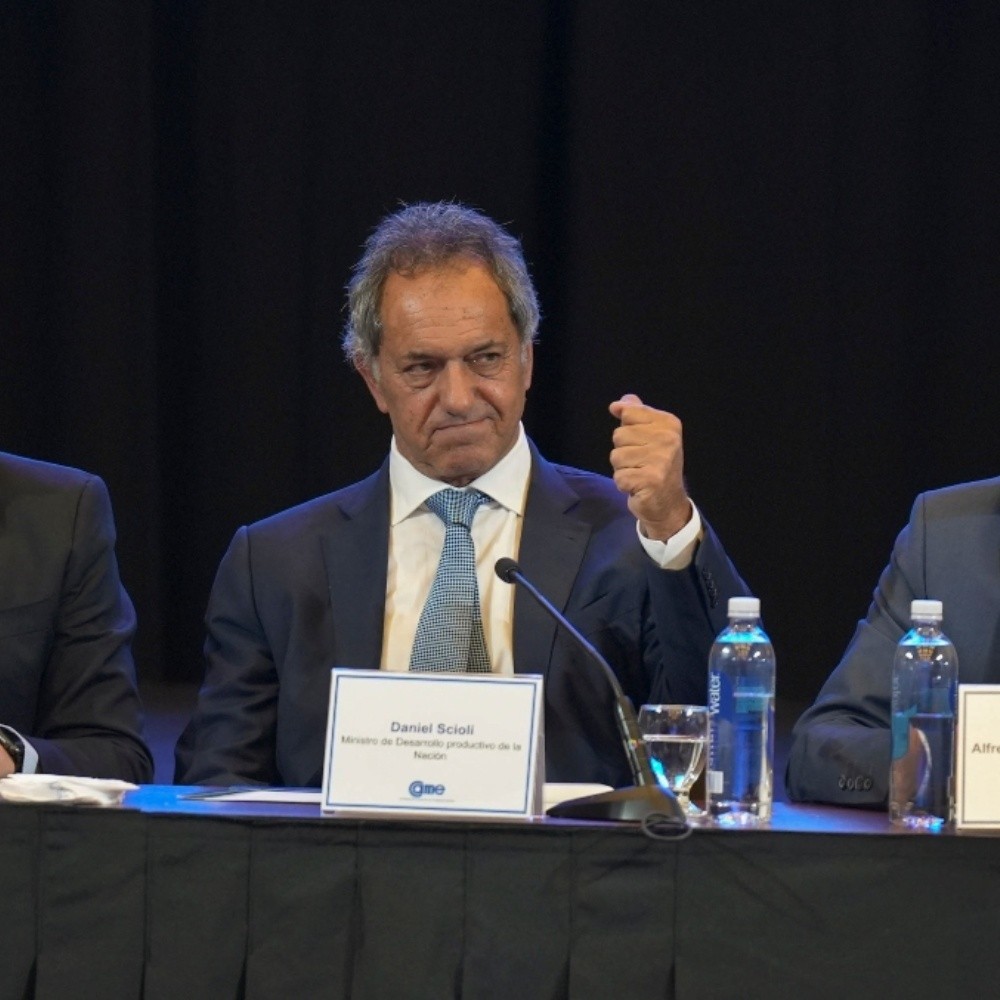The new Minister of Productive Development, Daniel Scioli, stated this Tuesday that the State must control “that speculative imports are not carried out”, which will require greater coordination work of his portfolio with Customs, the Federal Administration of Public Revenues (AFIP ) and the Secretary of Commerce.
As for “speculative imports to accumulate stock or take advantage of the double exchange rate,” Scioli explained that it is corrected with the joint and coordinated work of state agencies and added: “When there is a gap of these characteristics, we must be very attentive. that there are no speculative imports, that there is no over-invoicing or under-invoicing”.
On his first Tuesday at the head of the Production portfolio, Daniel Scioli had a packed agenda of meetings, where he held meetings with the leaders of the Argentine Industrial Union (UIA), the Argentine General Economic Confederation (Cgera) and the Argentine Confederation of the Medium Enterprise (CAME). He also had meetings with the Minister of Agriculture, Livestock and Fisheries, Julián Domínguez, and with the president of the Investment and Foreign Trade Bank (BICE), José de Mendiguren.
Within the meeting held with the UIA board of directors, headed by its president, Funes de Rioja, the evolution of industrial activity, the promotion of productive investment and initiatives to promote value-added exports were discussed, fundamental axes for national development.
“It is important to bring the proactive voice of industrialists closer to the minister regarding the challenges and difficulties of the federal productive framework. Argentina must transform recovery into growth, and for that it is necessary to agree on an agenda that values industrial assets and provides answers to difficulties in production,” said the president of the UIA.
We held an important working meeting with UIA authorities.
We address the evolution of industrial activity, the promotion of productive investment and initiatives to promote exports with added value, fundamental axes for national development. pic.twitter.com/ZLlm04FzSu
— Daniel Scioli ���� (@danielscioli) June 21, 2022
In relation to the administration of foreign trade, CGERA proposed “a sworn statement every 30 days from SMEs that need to import inputs or raw materials that are not produced in the country, intended for the manufacture of the final product and that do not exceed 25 % of monthly billing”, from the entity they indicated that this mechanism “will give certainty” in terms of imports to the industrial sector on the foreign exchange it requires.
As part of his round of meetings, Scioli met with Minister Julián Domínguez to empower agri-food cooperatives with benefits that increase their productivity and promote access to financing at a discounted rate for cooperatives, producers and MSMEs in the sector. In addition, both officials agreed to carry out joint work to “unite industry and the countryside and industrialize rural areas.”
For his part, the head of the agricultural portfolio stated: “We want to promote a model of productive integration that is industrializing, adding value and generating more work. We are building a state policy for the organization of the cooperative system. This changes the axis of the agricultural policy”.
An emotion to meet @AlfredoGZChaco, president of @redcame, a historic organization that had my father among its founders.
Know that this is a Ministry that will continue accompanying SMEs, those who market and those who produce in Argentina. pic.twitter.com/1VmxcFMe4x
— Daniel Scioli ���� (@danielscioli) June 21, 2022
In his last meeting of the day, Scioli visited the leadership of CAME. There, its president, Alfredo González, requested SME financing, strengthening in the internal and external market, and training and professional updating. Regarding the strengthening of the offer in the domestic market, CAME requested a plan that allows consumers to have better access to products of national origin SMEs through the development and strengthening of Open Shopping Centers, which today function as a true commercial fabric in its local business format.
